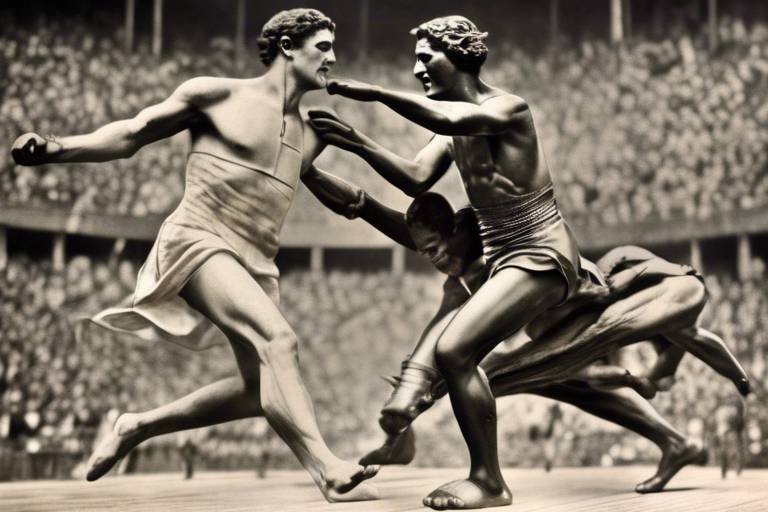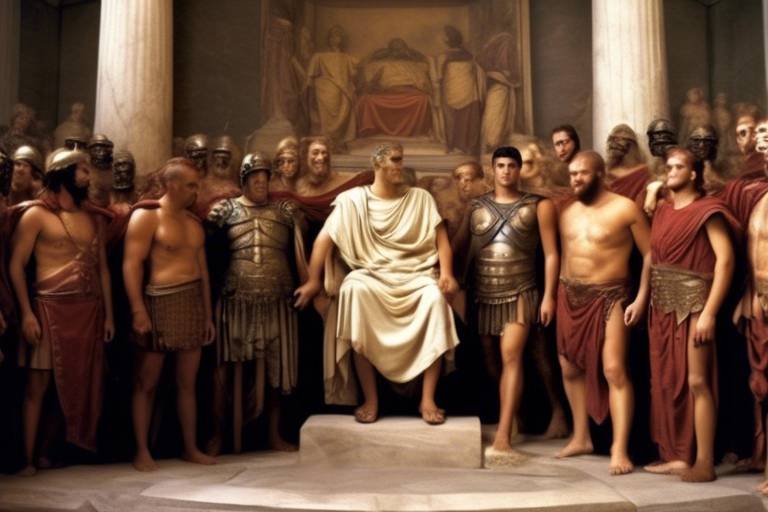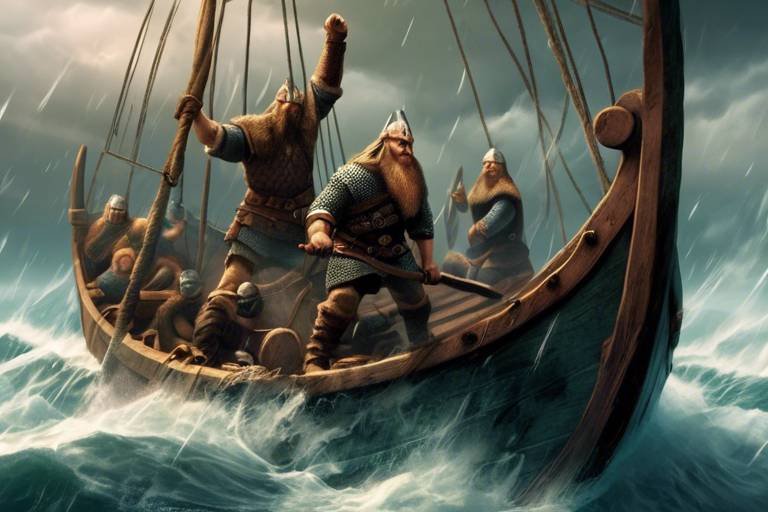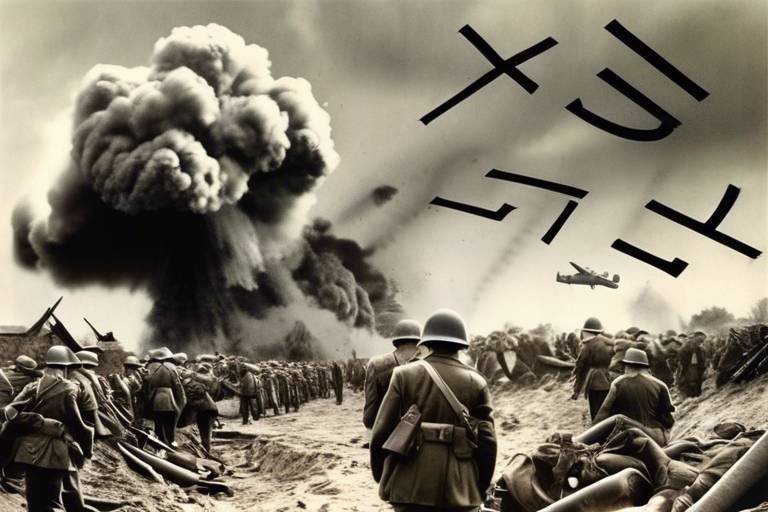The History of the Olympic Games - Ancient vs. Modern
The Olympic Games have a rich history that spans centuries, with the ancient games originating in Greece and the modern games being a global phenomenon. Explore the differences and similarities between the ancient and modern Olympics in this article.
The ancient Olympic Games were held in Olympia, Greece, starting around 776 BC as a tribute to the Greek god Zeus. These games were a significant part of Greek culture, featuring various athletic competitions and rituals.
The modern Olympic Games were revived in 1896 by Pierre de Coubertin in Athens, Greece, with the aim of promoting international understanding and peace through sports. This marked the beginning of the modern Olympic movement.
Both the ancient and modern Olympics feature a wide range of athletic events, including track and field, wrestling, boxing, and chariot races. However, the specific events and rules have evolved over time to adapt to changing times.
In ancient times, only free male Greek citizens were allowed to compete in the Olympic Games. Today, the modern Olympics are open to athletes from all countries and backgrounds, regardless of gender, race, or social status.
The Olympic flame, the five interlocking rings, and the playing of the Olympic anthem are iconic symbols and traditions that connect the ancient and modern Olympics. These elements represent unity, friendship, and excellence in sports.
The ancient Olympic Games were always held in Olympia, while the modern Olympics rotate among different host cities around the world. Each host city showcases its unique culture and heritage during the games.
The modern Olympics have embraced technological advancements in sports equipment, training methods, and broadcasting, enhancing the performance and viewing experience for athletes and spectators. These innovations continue to push the boundaries of human achievement.
Both the ancient and modern Olympics have left a lasting impact on global sports culture, promoting unity, fair play, and athleticism. The legacy of the Olympics transcends borders and inspires generations to strive for excellence in all aspects of life.
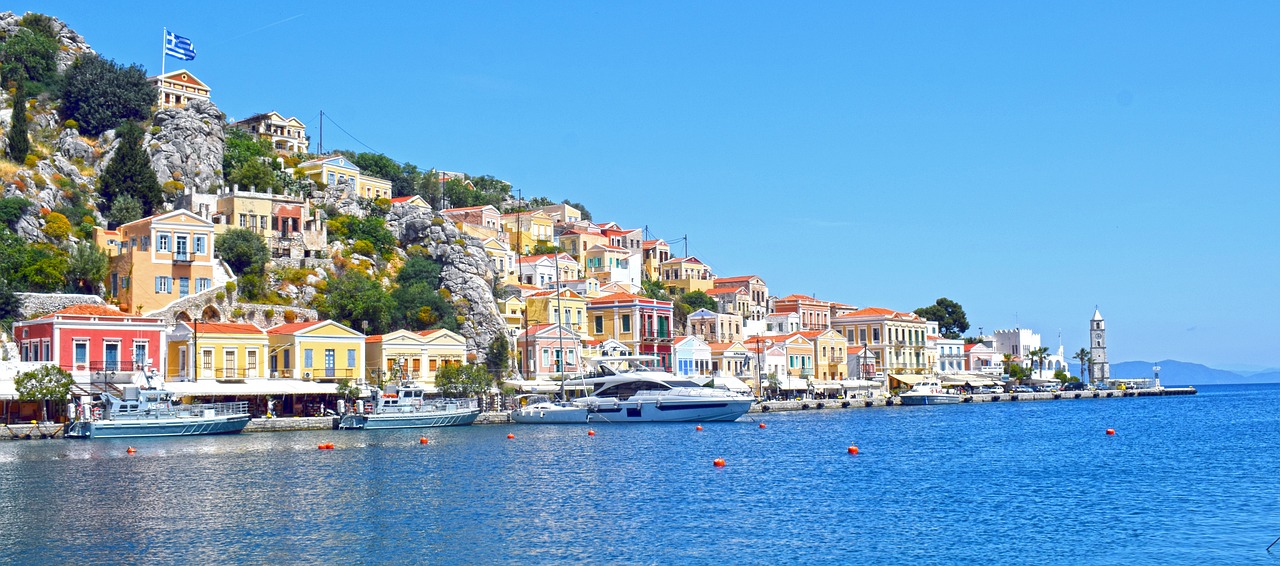
Ancient Olympic Origins
The ancient Olympic Games have their roots in Olympia, Greece, dating back to approximately 776 BC. These games were not just about athletic competitions but also served as a tribute to the mighty Greek god Zeus. Imagine the grandeur of ancient Greek athletes competing in events like running, wrestling, boxing, and chariot races in the sacred grounds of Olympia, amidst cheering crowds and olive wreaths awaiting the victors.
Moreover, the ancient Olympics were more than just sports; they were a celebration of Greek culture, uniting city-states in peaceful competition and honoring the gods. The Olympic truce, a temporary ceasefire during the games, allowed athletes and spectators to travel safely to Olympia, fostering a sense of unity and camaraderie among the Greek people.
The significance of the ancient Olympics extended beyond mere physical prowess, emphasizing the importance of discipline, honor, and excellence. Victors were hailed as heroes, their names immortalized in history, symbolizing the embodiment of the Greek ideals of beauty, strength, and virtue.
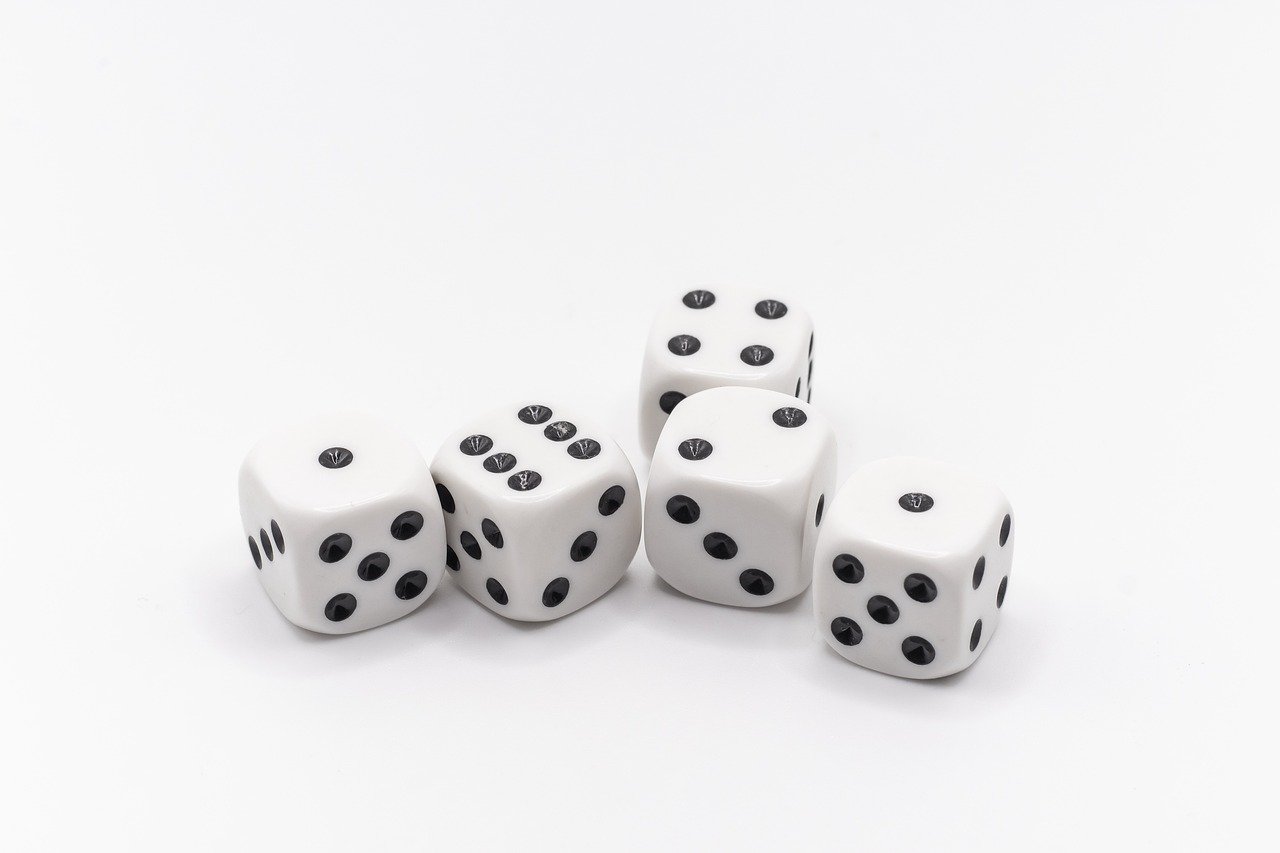
Revival of the Modern Olympics
The modern Olympic Games were revived in 1896 by Pierre de Coubertin in Athens, Greece. This revival marked a significant turning point in the history of sports, as it aimed to promote international understanding and peace through athletic competition. Coubertin's vision was to create a platform where athletes from around the world could come together in the spirit of sportsmanship and camaraderie.
After centuries of dormancy, the modern Olympics burst onto the scene with a bang, capturing the attention and imagination of people worldwide. The inaugural modern Olympics in 1896 featured athletes from 14 countries competing in 43 events, setting the stage for the global phenomenon that the games have become today.
The revival of the modern Olympics was not just a sporting event; it was a cultural and diplomatic extravaganza that transcended national boundaries. The games provided a platform for nations to showcase their athletic prowess and foster friendly competition, paving the way for a new era of international cooperation through sports.
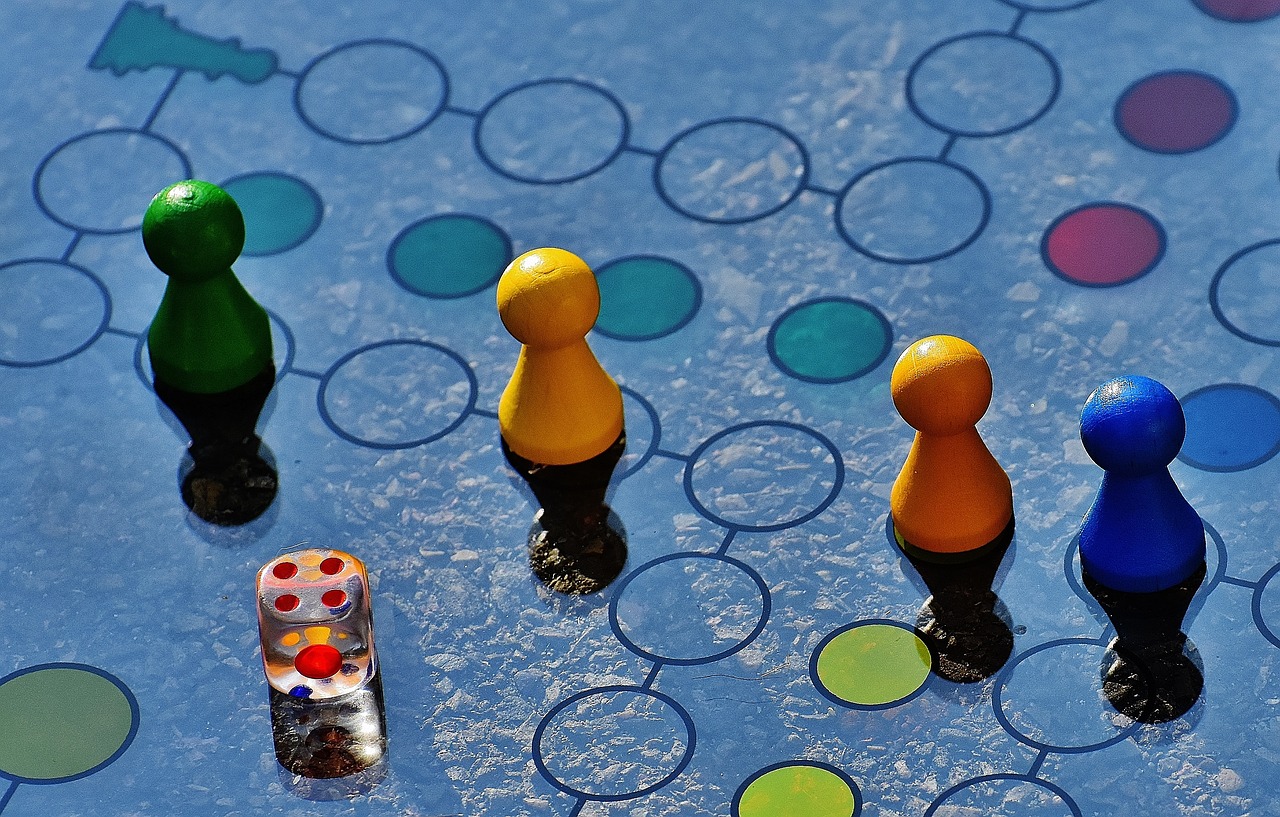
Athletic Events
The Olympic Games have a rich history that spans centuries, with the ancient games originating in Greece and the modern games being a global phenomenon. Explore the differences and similarities between the ancient and modern Olympics in this article.
Athletic events have always been at the core of the Olympic Games, showcasing the pinnacle of human physical prowess and skill. In both the ancient and modern Olympics, a wide array of sports is featured, ranging from track and field disciplines like sprinting, long jump, and javelin throw to combat sports such as wrestling and boxing. The ancient games also included unique events like chariot races, which have evolved over time to suit the changing interests and capabilities of athletes.
One of the defining characteristics of the modern Olympics is the inclusion of new sports and disciplines to reflect the diverse interests of global audiences. Sports like swimming, gymnastics, and cycling have become mainstays of the modern Olympic program, attracting athletes from all corners of the world to compete on the grandest stage.
Moreover, the evolution of sports science and technology has revolutionized athletic events, enabling athletes to push the boundaries of human performance. From high-tech running shoes to advanced training techniques, modern Olympians have access to tools and resources that were unimaginable in ancient times, leading to unprecedented levels of competition and achievement.
Q: What is the significance of the Olympic flame in the modern Olympics?
A: The Olympic flame symbolizes the link between the ancient and modern games, representing the continuity of the Olympic ideals across time.
Q: How are host cities selected for the modern Olympics?
A: Host cities are chosen through a competitive bidding process by the International Olympic Committee, considering factors such as infrastructure, sustainability, and legacy.
Q: Are there any sports that were part of the ancient Olympics but are not included in the modern games?
A: Yes, sports like pankration, a form of ancient martial arts, were part of the ancient Olympics but are no longer featured in the modern program due to safety concerns.

Participant Eligibility
In ancient times, only free male Greek citizens were allowed to compete in the Olympic Games. This strict eligibility criteria reflected the societal norms and values of the time, where participation in the games was seen as a privilege reserved for a select group of individuals. The ancient Olympics served as a platform for these privileged citizens to showcase their physical prowess and honor the gods through athletic competition.
Fast forward to the modern era, the Olympic Games have undergone a significant transformation in terms of participant eligibility. Today, the modern Olympics are open to athletes from all countries and backgrounds, regardless of gender, race, or social status. This inclusive approach aims to promote diversity, equality, and unity through sports, breaking down barriers that once restricted participation based on narrow criteria.
The evolution of participant eligibility in the Olympics symbolizes a shift towards a more inclusive and diverse sporting landscape, where individuals from all walks of life have the opportunity to compete on the world stage. This change reflects the changing values and beliefs of society, emphasizing the importance of equal opportunity and representation in sports.

Symbolism and Traditions
The Olympic Games have a rich history that spans centuries, with the ancient games originating in Greece and the modern games being a global phenomenon. Explore the differences and similarities between the ancient and modern Olympics in this article.
The ancient Olympic Games were held in Olympia, Greece, starting around 776 BC as a tribute to the Greek god Zeus. These games were a significant part of Greek culture, featuring various athletic competitions and rituals.
The modern Olympic Games were revived in 1896 by Pierre de Coubertin in Athens, Greece, with the aim of promoting international understanding and peace through sports. This marked the beginning of the modern Olympic movement.
Both the ancient and modern Olympics feature a wide range of athletic events, including track and field, wrestling, boxing, and chariot races. However, the specific events and rules have evolved over time to adapt to changing times.
In ancient times, only free male Greek citizens were allowed to compete in the Olympic Games. Today, the modern Olympics are open to athletes from all countries and backgrounds, regardless of gender, race, or social status.
The Olympic Games are rich in symbolism and traditions that bridge the gap between the ancient and modern eras. The iconic Olympic flame, representing the eternal flame of unity, is ceremoniously lit at the opening ceremony. The five interlocking rings, symbolizing the unity of the five continents, are a powerful visual representation of global togetherness. Additionally, the playing of the Olympic anthem, a musical ode to peace and excellence, resonates throughout the stadiums, inspiring athletes and spectators alike.
The ancient Olympic Games were always held in Olympia, while the modern Olympics rotate among different host cities around the world. Each host city showcases its unique culture and heritage during the games.
The modern Olympics have embraced technological advancements in sports equipment, training methods, and broadcasting, enhancing the performance and viewing experience for athletes and spectators. These innovations continue to push the boundaries of human achievement.
Both the ancient and modern Olympics have left a lasting impact on global sports culture, promoting unity, fair play, and athleticism. The legacy of the Olympics transcends borders and inspires generations to strive for excellence in all aspects of life.
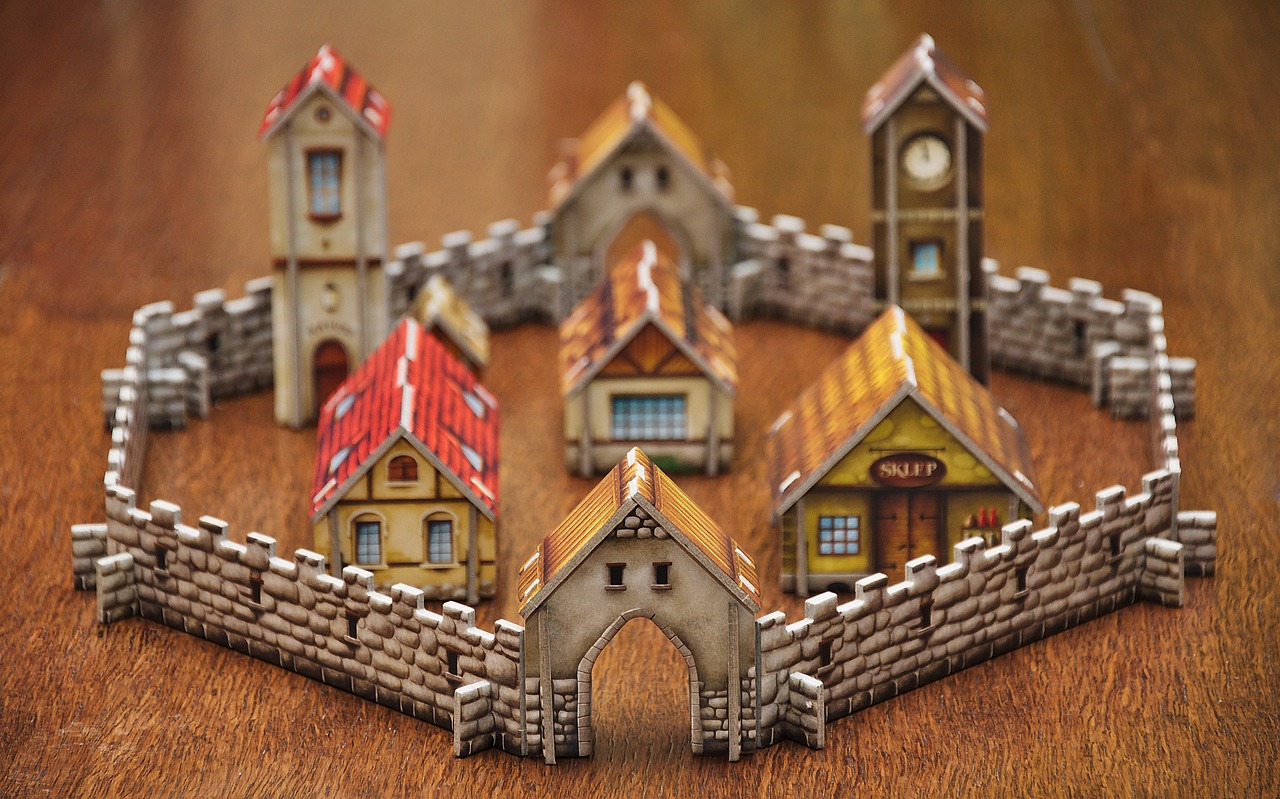
Host Cities and Venues
The Olympic Games have a rich history that spans centuries, with the ancient games originating in Greece and the modern games being a global phenomenon. Explore the differences and similarities between the ancient and modern Olympics in this article.
The ancient Olympic Games were held in Olympia, Greece, starting around 776 BC as a tribute to the Greek god Zeus. These games were a significant part of Greek culture, featuring various athletic competitions and rituals.
The modern Olympic Games were revived in 1896 by Pierre de Coubertin in Athens, Greece, with the aim of promoting international understanding and peace through sports. This marked the beginning of the modern Olympic movement.
Both the ancient and modern Olympics feature a wide range of athletic events, including track and field, wrestling, boxing, and chariot races. However, the specific events and rules have evolved over time to adapt to changing times.
In ancient times, only free male Greek citizens were allowed to compete in the Olympic Games. Today, the modern Olympics are open to athletes from all countries and backgrounds, regardless of gender, race, or social status.
The Olympic flame, the five interlocking rings, and the playing of the Olympic anthem are iconic symbols and traditions that connect the ancient and modern Olympics. These elements represent unity, friendship, and excellence in sports.
The ancient Olympic Games were always held in Olympia, while the modern Olympics rotate among different host cities around the world. Each host city showcases its unique culture and heritage during the games.
The modern Olympics have embraced technological advancements in sports equipment, training methods, and broadcasting, enhancing the performance and viewing experience for athletes and spectators. These innovations continue to push the boundaries of human achievement.
Both the ancient and modern Olympics have left a lasting impact on global sports culture, promoting unity, fair play, and athleticism. The legacy of the Olympics transcends borders and inspires generations to strive for excellence in all aspects of life.
Q: What is the significance of the Olympic flame?
A: The Olympic flame symbolizes the continuity between the ancient and modern Olympic Games and represents the spirit of competition and peace.
Q: How are host cities chosen for the modern Olympics?
A: Host cities are selected through a competitive bidding process based on factors such as infrastructure, accommodations, and the city's ability to host a large-scale international event.
Q: Are there any sports that were part of the ancient Olympics but are not included in the modern games?
A: Yes, sports like pankration, a mix of boxing and wrestling, were part of the ancient Olympics but are no longer included in the modern games due to safety concerns.
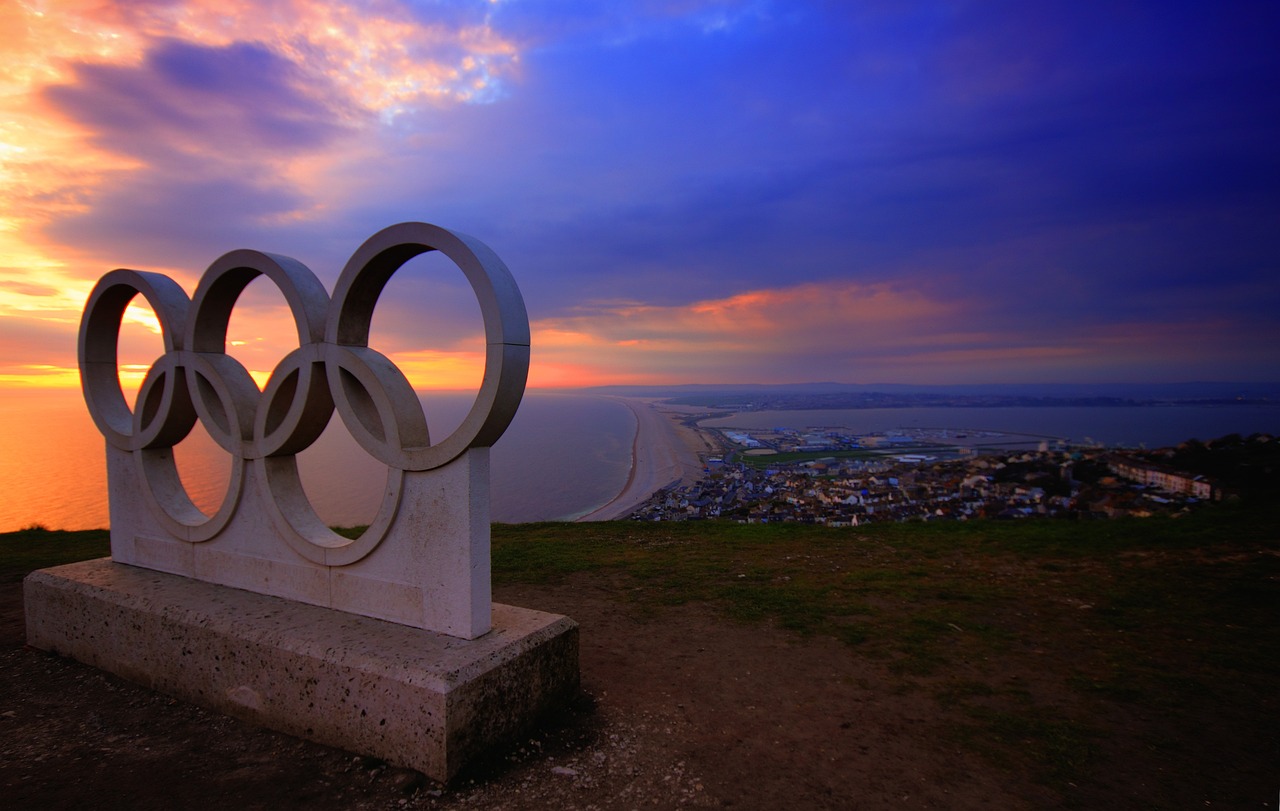
Technological Advancements
The Olympic Games have a rich history that spans centuries, with the ancient games originating in Greece and the modern games being a global phenomenon. Explore the differences and similarities between the ancient and modern Olympics in this article.
The ancient Olympic Games were held in Olympia, Greece, starting around 776 BC as a tribute to the Greek god Zeus. These games were a significant part of Greek culture, featuring various athletic competitions and rituals.
The modern Olympic Games were revived in 1896 by Pierre de Coubertin in Athens, Greece, with the aim of promoting international understanding and peace through sports. This marked the beginning of the modern Olympic movement.
Both the ancient and modern Olympics feature a wide range of athletic events, including track and field, wrestling, boxing, and chariot races. However, the specific events and rules have evolved over time to adapt to changing times.
In ancient times, only free male Greek citizens were allowed to compete in the Olympic Games. Today, the modern Olympics are open to athletes from all countries and backgrounds, regardless of gender, race, or social status.
The Olympic flame, the five interlocking rings, and the playing of the Olympic anthem are iconic symbols and traditions that connect the ancient and modern Olympics. These elements represent unity, friendship, and excellence in sports.
The ancient Olympic Games were always held in Olympia, while the modern Olympics rotate among different host cities around the world. Each host city showcases its unique culture and heritage during the games.
Technological advancements in sports have revolutionized the modern Olympics, enhancing both the performance of athletes and the viewing experience for spectators. From high-tech equipment to advanced training methods, technology has pushed the boundaries of human capability in sports. The introduction of instant replays, electronic timing systems, and virtual reality simulations has transformed how we engage with Olympic events, bringing viewers closer to the action than ever before. Moreover, the development of lightweight and aerodynamic materials has improved athletes' gear, enabling them to achieve greater speed and precision in their performances. The integration of data analytics and performance tracking tools has also allowed coaches and athletes to fine-tune their strategies based on real-time insights, giving them a competitive edge on the global stage. As technology continues to evolve, the future of the Olympics holds endless possibilities for innovation and excitement.
Both the ancient and modern Olympics have left a lasting impact on global sports culture, promoting unity, fair play, and athleticism. The legacy of the Olympics transcends borders and inspires generations to strive for excellence in all aspects of life.

Global Impact and Legacy
When it comes to the global impact and legacy of the Olympic Games, it's impossible to overlook the profound influence they have had on sports culture and international relations. The Olympics serve as a platform for countries to come together in a spirit of friendly competition, setting aside political differences and promoting unity through sportsmanship.
One of the most significant legacies of the Olympics is the emphasis on fair play and athleticism, inspiring athletes and spectators alike to strive for excellence and push the boundaries of human potential. The values of respect, integrity, and perseverance instilled by the Games continue to resonate across generations, transcending borders and languages.
Moreover, the Olympics have played a crucial role in promoting gender equality and inclusivity in sports. Over the years, the Games have become more diverse and inclusive, welcoming athletes from all backgrounds and identities to participate on the world stage. This commitment to diversity and equality has helped break down barriers and challenge stereotypes in the sporting world.
From a cultural perspective, the Olympics have become a symbol of peace and friendship, bringing people from different nations together in a celebration of shared humanity. The iconic Olympic flame, the interlocking rings, and the stirring sounds of the Olympic anthem serve as powerful reminders of the values of unity, solidarity, and excellence that the Games represent.
As the Olympics continue to evolve and adapt to the changing world, their impact on global society remains as strong as ever. The legacy of the Games endures not only in the records broken and medals won but also in the connections forged and the inspiration sparked in millions of hearts around the world.
Frequently Asked Questions
- What were the prizes for winners in the ancient Olympic Games?
In the ancient Olympic Games, winners were honored with olive wreaths, as well as receiving recognition and respect from their fellow citizens. The symbolic olive wreath signified victory and glory in the eyes of the Greek society.
- How often are the modern Olympic Games held?
The modern Olympic Games are held every four years, with the Summer and Winter Games alternating every two years. This schedule allows for athletes from around the world to compete on a global stage and showcase their talents.
- What is the significance of the Olympic rings?
The five interlocking rings symbolize the unity of the five continents (Africa, the Americas, Asia, Europe, and Oceania) through the Olympic movement. The colors of the rings - blue, yellow, black, green, and red - were chosen because at least one of these colors appears on every national flag in the world.
- How are host cities selected for the modern Olympics?
Host cities for the modern Olympics are selected through a bidding process by the International Olympic Committee (IOC). Cities interested in hosting the Games submit detailed proposals outlining their plans for venues, accommodations, transportation, and sustainability efforts.
- Can athletes from different countries train together for the Olympics?
Yes, athletes from different countries often train together, especially in sports that require specialized facilities or coaching expertise. Training with international partners can provide valuable learning experiences and foster a sense of camaraderie among competitors.

